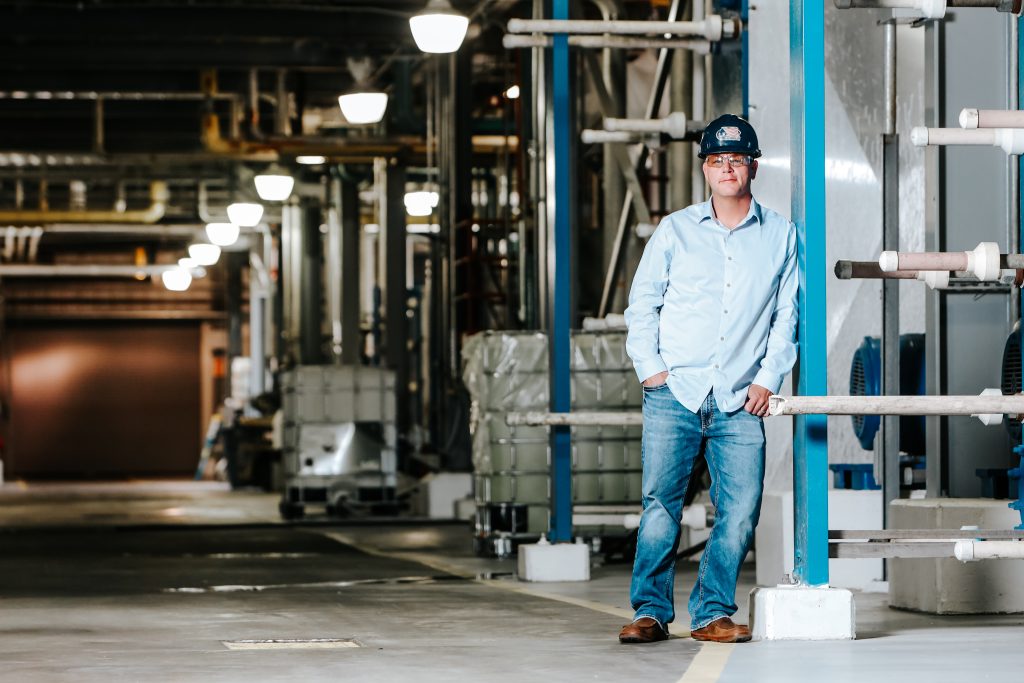Lincolnway Energy, located between Ames and Nevada, celebrated the milestone of 1 billion gallons of ethanol produced in January 2023. Originally formed in May 2004, the plant started as a 50 million gallon per year dry mill ethanol plant. Today, it produces close to 95 million gallons of ethanol a year and is a driver of economic activity across the region.
According to the Iowa Corn Growers Association, Iowa produces 2.5 billion bushels of corn each year, with over half of that going to ethanol production. Iowa leads the nation in ethanol production, with 57 percent (1.5 billion bushels) of the corn grown in Iowa going to create nearly 27 percent of all American ethanol. Lincolnway Energy is one of 42 ethanol plants in Iowa and a key player in helping assure a strong future for clean, renewable, and domestically produced fuels.
Nearly 20 years ago, Lincolnway Energy was one of only 4 coal-fired plants in the nation. At the time, coal was inexpensive to use, and the plant paid for itself in a short period of time. They produced 50 million gallons a year and operated partner ethanol plants in Minnesota and North Dakota. In 2014, the company moved to natural gas through Alliant Energy, and this move, along with a staff restructuring and efficiency audit, triggered an acceleration in production. The company started producing 50, 60, 70 million gallons of ethanol a year, and by 2023, they were up to 95 million gallons.
The daily operations of an ethanol plant are robust, but with automation, much of it can be controlled by a small crew working around the clock. There are days when Lincolnway receives 40,000 bushels of corn an hour. At 56 pounds a bushel, this can be up to 200 truckloads a day. Through their dry mill production, they are grinding 90,000 bushels a day, creating corn mash, and ultimately producing 260,000 gallons of ethanol a day. All of this is done with 42 employees on staff.
Plant Manager Chris Cleveland, who has been with Lincolnway Energy since 2008, recognizes the importance of developing a strong staff culture for the plant to operate effectively. “For us, it’s not just 42 employees, it’s 42 families that are part of our organization. What makes Lincolnway Energy special is that everyone has a voice, a hieracrchy is almost non-existent because we each need to understand jobs across the plant.” He talked about long hours at the plant with many working 12-hour shifts. “Sometimes we see each other more than our families and because of that sacrifice, we have to take care of our employees.”
Lincolnway employs staff from across a four-county region including Boone, Marshall, Polk, and Story County. A few have relocated their families to the region from as far as Texas and Georgia. The economic impact of this ethanol plant extends beyond the Ames MSA. This plant touches nearly 300 Iowa farmers and works closely with economic partners such as Key Cooperative, located east of the plant. With a direct line on the Union Pacific Railroad, the alcohol is shipped as far as Arizona where it is blended to be used as gasoline.
Cleveland sees Lincolnway Energy as the “jewel” of Iowa ethanol plants. In many ways, they are a destination to learn about the ethanol production. In 2007, the cast and crew from American Chopper, the reality television series from the Discovery Channel, visited the plant and later revealed America’s first renewable energy chopper. More recently, three different documentary crews who are covering the ethanol industry toured and conducted interviews at the plant.
